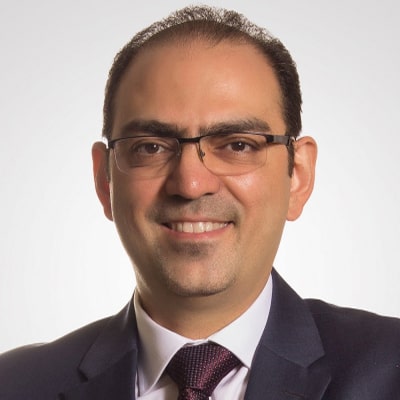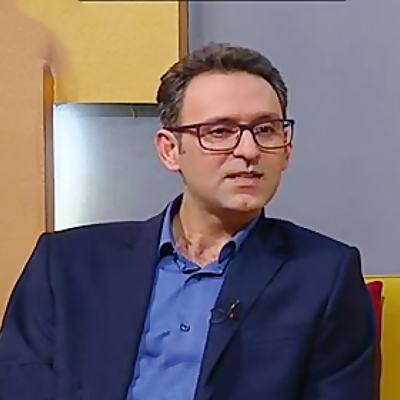Gastric Bypass in Iran
Gastric bypass surgery shrinks the size of your stomach, so you can’t eat as much as you used to. The surgeon will also re-route, or bypass, part of your digestive system, so you don’t absorb as much food.
We help you to double your beauty! Get in touch with our consultants…


Stay in Iran
8 days
Recovery time
14-16 days
Clinic Stay
1 day
Stay in Iran
8 days
Recovery time
14-16 days
Clinic Stay
1 day
- Packeges
- Videos
- B & A Photos
- Surgeon
- Hotels
- FAQs
What is Gastric Bypass Surgery?
Gastric bypass surgery shrinks the size of your stomach, so you can’t eat as much as you used to. The surgeon will also re-route, or bypass, part of your digestive system, so you don’t absorb as much food.
There are several types of Gastric Bypass in Iran :
Roux-en-Y gastric bypass: This is the most common gastric bypass surgery done in Iran. Surgeons can do it through a small cut, which has a quicker recovery time compared to others.
First, the surgeon makes a small stomach pouch by stapling part of the stomach together or by vertical banding. This limits how much food you can eat. Next, the surgeon attaches a Y-shaped section of the small intestine to the pouch. That creates a bypass for food, so it skips part of your digestive system. As a result, you absorb fewer calories and nutrients.
Extensive gastric bypass (biliopancreatic diversion): This is a more complicated type of gastric bypass in Iran . The surgeon removes the lower part of the stomach. He then connects the small pouch that remains directly to the last part of the small intestine, completely bypassing the first two parts. It works for weight loss but is not widely used because it has a high complication rate and can leave you short on nutrients.
Gastric Bypass Packeges in Iran
Premium
3,340$
- Treatment visa
- Airport pickup
- Transportation
- All medications
- Medical interpreter
- Simcard with internet
- Medical Photography
- 24/7 on phone Translator
- 5 Stars Hotel
Basic
3,150$
- Treatment visa
- Airport pickup
- Transportation
- All medications
- Medical interpreter
- Simcard with internet
- Medical Photography
- 24/7 on phone Translator
- 4 Stars Hotel
Basic
3,150$
- Treatment visa
- Airport pickup
- Transportation
- All medications
- Medical interpreter
- Simcard with internet
- Medical Photography
- 24/7 on phone Translator
- 4 Stars Hotel
Premium
3,340$
- Treatment visa
- Airport pickup
- Transportation
- All medications
- Medical interpreter
- Simcard with internet
- Medical Photography
- 24/7 on phone Translator
- 5 Stars Hotel
Qualifications for gastric bypass surgery at Mediranco:
- BMI≥40,or more than 100 pounds overweight.
- BMI ≥ 35 and at least one or more obesity-related co-morbidities such as type II diabetes (T2DM), hypertension, sleep apnea and other respiratory disorders, non-alcoholic fatty liver disease, osteoarthritis, lipid abnormalities, gastrointestinal disorders, or heart disease.
- Inability to achieve a healthy weight loss sustained for a period of time with prior weight loss efforts.
Several qualifications are required for a person to be accepted as an ideal candidate for this surgery, but don’t worry! Our experts at Mediranco are available all day and night, responding to all your queries, including questions related to qualifications for the process.
We at Mediranco health tourism company also recommend that surgery be performed by a board-certified surgeon with specialized experience/training in bariatric and metabolic surgery and at a center that has a multidisciplinary team of experts for follow-up care. This may include a nutritionist, an exercise physiologist or specialist, and mental health professional.
Romanian girl choosing Iran for a perfect Gastric Bypass result
Gastric Bypass Cost Around the World
The cost of gastric bypass surgery can vary significantly worldwide due to factors such as location, surgeon expertise, technique, and medical facility. Here’s a comparison of gastric bypass costs in different countries:
Iran: Regular gastric bypass procedures cost approximately 3,500€.
United States: The average cost is around 24,000€.
Canada: Roughly 20,000€.
Australia: Approximately 17,000€.
India: About 10,400€.
Thailand: Around 10,500€.
United Kingdom: Between 10,000€ and 15,000€.
Mexico: Ranges from 7,000€ to 10,000€.
Furthermore, mini gastric bypass surgery in Iran averages around 3,500€, while in the United States, similar procedures can cost between 15,000€ and 25,000€.
Others Video
Australian girl getting a Gastric Bypass in Irant hinks it’s way better than you think
Australian girl getting a Gastric Bypass in Irant hinks it’s way better than you think
Australian girl getting a Gastric Bypass in Irant hinks it’s way better than you think
Australian girl getting a Gastric Bypass in Irant hinks it’s way better than you think
Gastric Bypass in Iran before and after
Before
after

Before
after
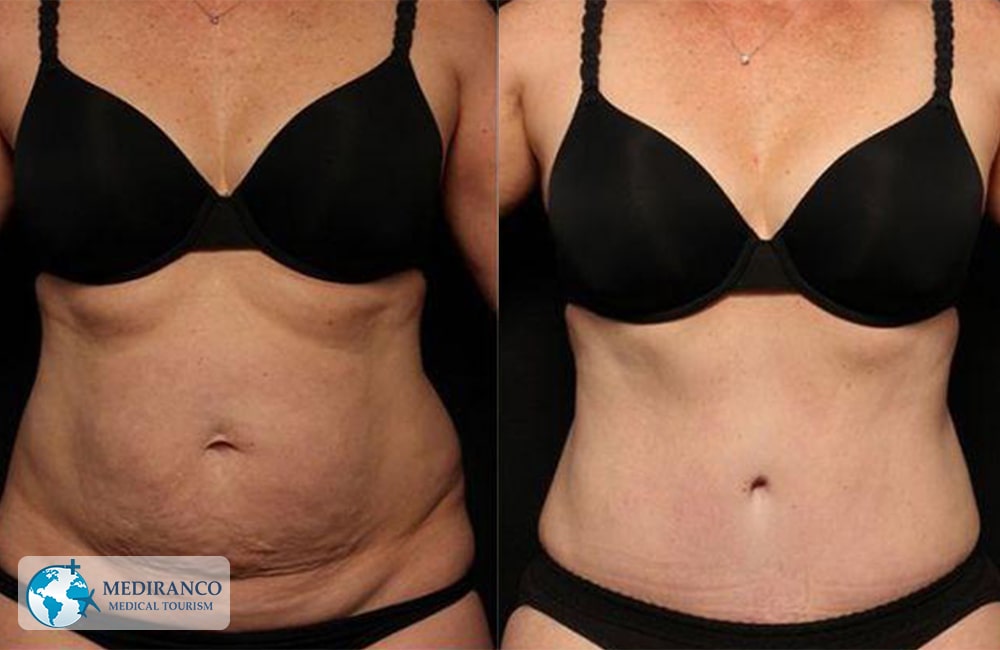
Before
after

Before
after
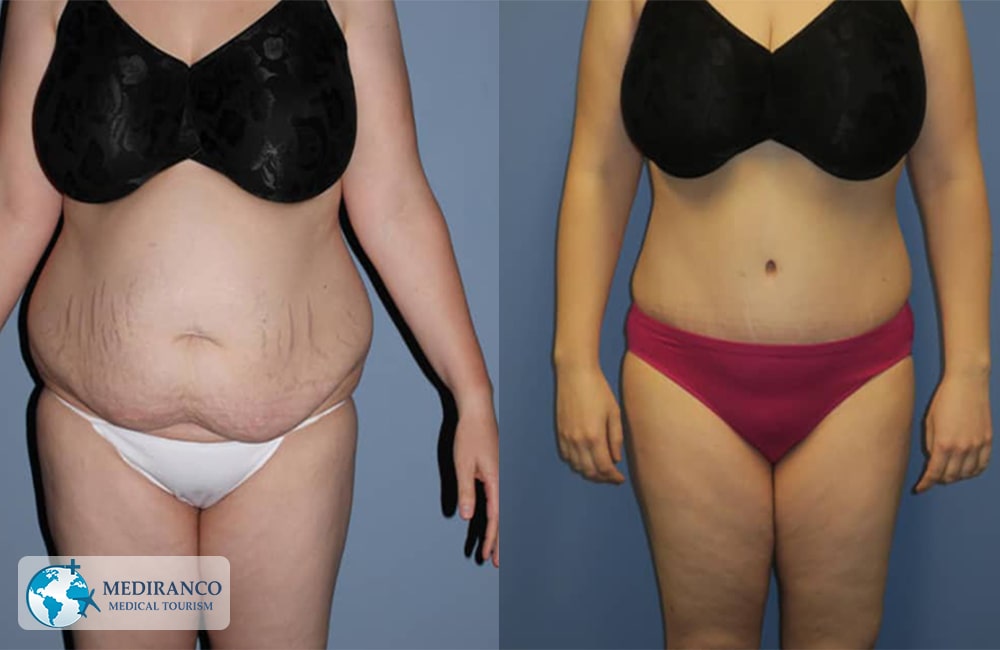
What Our Customer Say
Iesna
GB

Mediranco is an excellent agency they helped me arrange my whole trip to Iran and surgery with Dr. Hooman Ganjehkhosravi. From the moment I arrived in Tehran, I was greeted with warmth and hospitality that made…
Lydia
GB

I had a guide called sara who was absolutely amazing. She was so caring and kind and made sure I was comfortable and safe throughout my trip. I really recommend any one using mediran to book with sara!
Mansoor
DK
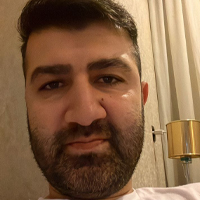
My name is Mansoor from Denmark .I highly recommend this mediranco. Mr Hossain was very kind and Good person. The Company mediranco is very fast to response. Thanks mediranco
Amal
AU

I had an amazing experience with Mediranco’s service. Traveling to Iran on November 1st, 2023, for Gastric sleeve surgery was truly incredible. From the airport pick-up to a farewell dinner on my last day, the journey was exceptional…
Now, let’s have a look at the photos of our patients in Iran!






Dr Shahriar Yahyavi
+2000
Successful Surgeries
12
Years of Experience
Successful Surgeries
+5
Dr Mitra Manavi
+2000
Successful Surgeries
12
Years of Experience
Successful Surgeries
+5
Dr kasra sabeti
+2000
Successful Surgeries
12
Years of Experience
Successful Surgeries
+5
Dr Farzad Nikouseresht
+2000
Successful Surgeries
12
Years of Experience
Successful Surgeries
+5
Dr Asadollah Mahdavi
+2000
Successful Surgeries
12
Years of Experience
Successful Surgeries
+5
Best Gastric Bypass Surgeon Iran
Gastric Bypass Cost in Iran
Gastric bypass surgery in Iran is an exceptionally cost-effective choice compared to many other countries. The average cost for a regular gastric bypass procedure in Iran is approximately 3,500€, making it an affordable option for those seeking this surgery. Similarly, mini gastric bypass surgery in Iran is priced at an average of 3,500€. Beyond surgical costs, Iran offers lower expenses for necessities like transportation, accommodation, and food.
Selecting a medical facility like Mediranco in Iran not only helps individuals achieve their medical objectives but also keeps overall expenses reasonable. For precise cost estimates and additional information, individuals can rely on Mediranco’s 24/7 support team, ensuring a well-informed and budget-friendly approach to gastric bypass surgery.
How is gastric bypass performed?

Before this surgery, you will be put under general anesthesia. You will be pain-free and asleep.
During gastric bypass surgery, there are two steps:
- Your stomach gets smaller in the first step. Your surgeon uses staples to divide your stomach into a smaller upper section and a larger bottom section. The food you eat will go into the upper part of your stomach, which is referred to as the pouch. The pouch is roughly walnut-sized. Only about 1 ounce (oz) or 28 grams (g) of food can fit inside. You will eat less as a result and lose weight.
- The bypass is the next step. The jejunum, a small part of your small intestine, is connected to a tiny hole in your pouch by your surgeon. This new opening will now allow food to pass from the pouch into your small intestine. Your body will absorb fewer calories as a result
Hotels

Shiraz Hotel
Tehran, crossroad of chamran and valiasr, parsian esteghlal international hotel

Sarina Hotel
Tehran, crossroad of chamran and valiasr, parsian esteghlal international hotel

SarayeAmeriha Boutique Hotel
Tehran, crossroad of chamran and valiasr, parsian esteghlal international hotel

Parsian Safaiyeh Hotel
Tehran, crossroad of chamran and valiasr, parsian esteghlal international hotel

Parsian Esteghlal Hotel
Tehran, crossroad of chamran and valiasr, parsian esteghlal international hotel

Parsian Azadi Hotel
Tehran, crossroad of chamran and valiasr, parsian esteghlal international hotel
How to Recover From Gastric Bypass?
- Take time off work
Most patients take 7-10 days off work to recover from a Gastric Bypass procedure. You will likely feel some discomfort and swelling during this time, so it is important to take it easy and rest.

- Follow your surgeon’s instructions
Guidance from your plastic surgeon is key post Gastric Bypass. Adhere to their instructions meticulously for effective care. Your surgeon will provide details on cleaning the area, managing swelling and pain, and scheduling follow-up appointments. Keep your head elevated during the initial days to reduce swelling, and your surgeon might recommend a nose splint or cast for protection. Additionally, pay attention to your diet—following your surgeon’s advice on nutrition and fluid intake contributes to a smooth recovery. Trust the process and ensure the best outcomes by following your surgeon’s personalized care plan.

- Avoid strenuous activities:
You should avoid strenuous activities such as exercise, heavy lifting, and bending over for at least two weeks after the procedure. This will help to minimize swelling and prevent any damage to the delicate tissues in your nose.

- Take your medications as directed
If prescribed pain medication, take it as directed to alleviate any post-procedure discomfort. Also, to ensure the best results and prevent infections, diligently take the prescribed antibiotics. Timely and consistent medication intake is crucial, so stay on schedule and trust your surgeon’s advice for a smooth and successful recovery.

- Use cold compresses
Applying cold compresses to your nose can help to reduce swelling and discomfort. Be sure to follow your surgeon’s instructions on how often to use cold compresses and how long to apply them for.

- Attend follow-up appointments
Applying cold compresses to your nose can help to reduce swelling and discomfort. Be sure to follow your surgeon’s instructions on how often to use cold compresses and how long to apply them for.

- Avoid alcohol and smoking
Applying cold compresses to your nose can help to reduce swelling and discomfort. Be sure to follow your surgeon’s instructions on how often to use cold compresses and how long to apply them for.

Iran, the best country for weight loss surgeries
Iran was one of the first countries to develop the knowledge and technology of less invasive techniques for treating stomach enlargement. While this knowledge has only recently become available in some nations, Iran has consistently performed the surgery for more than ten years. The nation’s first obesity clinic was established in a public hospital in Tehran. Other clinics quickly followed suit throughout the country, with important hospitals opening bariatric clinics. The best locations for this surgery are now the medical hub cities of Iran, including Tehran, Shiraz, Tabriz, Esfahan, and Mashhad. All of these cities readily accept and provide services for medical tourists.
What should I Expect during a Consultation for Gastric Bypass in Iran?
Your initial consultation is an introductory meeting at our specially-designed facility. There, an experienced bariatric surgeon will answer all your medical and personal questions. Be assured it’s conducted in the strictest confidence, and you will be treated with the respect, dignity, and understanding you deserve.
The priority of Mediranco is to ensure all your concerns are thoroughly addressed as you prepare for weight loss surgery. Unlike the one-size-fits-all approach you find at other medical facilities, we specialize in bariatric surgery, laparoscopic gastric bypass, lap band, and the laparoscopic gastric sleeve procedure. We at Mediranco provide a personal individual care program which large general hospitals worldwide cannot offer.


Gastric Sleeve and Gastric Bypass compared:
Bariatric surgery is a procedure that aids in weight loss. It is a choice if you need to lose much weight, especially if diet pills, increasing your activity level, and improving your diet haven’t been successful.Gastric sleeve surgery and gastric bypass surgery are the most common bariatric procedures.
While there are significant differences between the two procedures, there are also some similarities. Your stomach is reduced from its standard size to a small pouch through either gastric sleeve surgery or gastric bypass. In two ways, this results in weight loss:
- The pouch quickly fills up, limiting how much food you can consume before feeling full.
- the “hunger hormone” ghrelin, which is typically present, is lowered
The new stomach pouch is created differently during the two procedures:
the surgeon permanently removes about 80 percent of your stomach with gastric sleeve surgery. What remains is sewn into a small banana-shaped stomach pouch. No other changes are made.
- Gastric bypass surgery
The majority of your stomach and the first section of your small intestine are removed during this procedure, also known as the Roux-en-Y gastric bypass, to create a small stomach pouch.
The remaining small intestine is then rejoined to the newly formed stomach pouch. Since the bypassed portion of the stomach is still connected to the small intestine further down, it continues to supply the acid and digestive enzymes made there.
Typically, some nutrients and calories are absorbed from the section of your small intestine that is removed along with your stomach. The absorption of those calories is prevented because this section is bypassed, which helps you lose weight.
In recent years, interest in the mini-gastric bypass procedure has grown. Dr. Robert Rutledge created the mini-gastric bypass for the first time in 1997. Compared to traditional gastric bypass surgery, the mini-gastric bypass is quicker, technically simpler, and has a 2.9 percent lower complication rate (2012 MGB study).
The mini-gastric bypass procedure is restrictive and malabsorptive. This indicates that the process shrinks your stomach, limiting how much you can eat. Bypassing up to 6 feet of the intestines leads to reduced food absorption. Both the gastric bypass and the mini-gastric bypass are restrictive and malabsorptive operations. Both the Lap-Band and the gastric sleeve impose restrictions.


risks and complications
Patients with obesity can lose significant weight thanks to gastric bypass surgeries. Surgery, however, always carries some risk. You can decide if having surgery is the best course of action for you by asking our experts at Mediranco to explain the risks and complications most commonly associated with gastric bypass.
The risks and complications often associated with gastric bypass may include:
- Malnutrition
- Stomal stenosis
- Dumping syndrome
- Peritonitis
For more details regarding the mentioned complications you may contact our all day and night present support.
How long after gastric bypass surgery will I have to be out of work?
After surgery, most patients return to work in one or two weeks. You will have low energy for a while after surgery and may need to have some half days, or work every other day for your first week back. Your surgeon will give you clear instructions. Most jobs want you back in the workplace as soon as possible, even if you can’t perform ALL duties right away. Your safety and the safety of others are extremely important – low energy can be dangerous in some jobs. Many patients are worried about getting hernias at incisions. That is almost never a problem from work or lifting. Hernias are more often the result of infection. You will not feel well if you do too much.
When can I start exercising again after surgery?
Right away! You will take gentle, short walks even while you are in the hospital. The key is to start slow. Listen to your body and your surgeon. If you lift weights or do sports, stay “low impact” for the first month (avoid competition, think participation). Build slowly over several weeks. If you swim, your wounds need to be healed before you get back in the water.
Does type 2 diabetes make surgery riskier?
It can. Be sure to follow any instructions from your surgeon about managing your diabetes around the time of surgery. Almost everyone with Type 2 Diabetes sees big improvement or even complete remission after surgery. Some studies have even reported improvement of Type 1 Diabetes after bariatric procedures.
Can I have laparoscopic surgery if I have heart disease?
Yes, but you may need medical clearance from your cardiologist. Bariatric surgery leads to improvement in most problems related to heart disease including: ● High Blood Pressure ● Cholesterol ● Lipid problems ● Heart enlargement (dilated heart, or abnormal thickening) ● Vascular (artery and vein) and coronary (heart artery) disease During the screening process, be sure to let your surgeon or nurse know about any heart conditions you have. Even those with atrial fibrillation, heart valve replacement, or previous stents or heart bypass surgery usually do very well. If you are on blood thinners of any type, expect special instructions just before and after surgery.
When can I get pregnant after gastric bypass surgery? Will the baby be healthy?
Most women are much more fertile after surgery, even with moderate pre-op weight loss. Birth control pills do NOT work as well in patients who are overweight. Birth control pills are not very reliable during the time your weight is changing. For this reason, having an IUD or using condoms and spermicide with ALL intercourse is needed. Menstrual periods can be very irregular, and you can get pregnant when you least expect it! Most groups recommend waiting 12-18 months after surgery before getting pregnant. Many women who become pregnant after surgery are several years older than their friends were when having kids. Being older when pregnant does mean possible increased risks of certain problems. Down syndrome and spinal deformities are two examples. The good news is that, after surgery, there is much less risk of experiencing problems during pregnancy (gestational diabetes, eclampsia, macrosomia) and during childbirth. There are also fewer miscarriages and stillbirths than in women with obesity who have not had surgery and weight loss. Kids born after mom’s surgery are LESS at risk of being affected by obesity later, due to activation of certain genes during fetal growth. There is also less risk of needing a C section.
Will I need to have plastic surgery? Does insurance pay for plastic surgery?
Most patients have some loose or sagging skin, but it is often more temporary than expected. You will have a lot of change between 6 and 18 months after surgery. Your individual appearance depends upon several things, including how much weight you lose, your age, your genetics and whether or not you exercise or smoke. Generally, loose skin is well-hidden by clothing. Many patients wear compression garments, which can be found online, to help with appearance. Some patients will choose to have plastic surgery to remove excess skin. Most surgeons recommend waiting at least 18 months, but you can be evaluated before that. Plastic surgery for removal of excess abdominal and breast skin is often covered by insurance for reasons of moisture, hygiene and rash issues. Arms and other areas may not be covered if they are considered “purely” cosmetic by your insurer. Some of these “less invasive” operations can be done in the clinic, however – so they can be much more affordable!
Will I lose my hair after gastric bypass surgery?
Some hair loss is common between 3 and 6 months following surgery. The reasons for this are not totally understood. Even if you take all recommended supplements, hair loss will be noticed until the follicles come back. Hair loss is almost always temporary. Adequate intake of protein, vitamins and minerals will help to ensure hair regrowth, and avoid longer term thinning.
Will I have to take vitamins and minerals after surgery? Will my insurance pay for these?
You will need to take a multivitamin for life. You may need higher doses of certain vitamins or minerals, especially Iron, Calcium, and Vitamin D. You will also need to have at least yearly lab checks. Insurance almost never pays for vitamin and mineral supplements but usually does pay for labs. You can pay for supplements out of a flex medical account.
Will I have to go on a diet before I have surgery?
Yes. Most bariatric surgeons put their patients on a special pre-operative diet, usually 2 or 3 weeks just before surgery. The reason for the pre-operative diet is to shrink the liver and reduce fat in the abdomen. This helps during the procedure and makes it safer. Some insurance companies require a physician-monitored diet three to six months prior to surgery as part of their coverage requirement. These diets are very different from the short term diets, and usually are more about food education and showing a willingness to complete appointments and to learn.
Will I have to diet or exercise after the procedure?
No and Yes. Most people think of a “diet” as a plan that leaves you hungry. That is not the way people feel after surgery. Eventually, most patients get some form of appetite back 6-18 months after surgery. Your appetite is much weaker, and easier to satisfy than before. This does not mean that you can eat whatever and whenever you want. Healthier food choices are important to best results, but most patients still enjoy tasty food, and even “treats.” Most patients also think of exercise as something that must be intense and painful (like “boot camp”). Regular, modest activity is far more useful in the long term. Even elite athletes can’t stay at a “peak” every week of the year. Sometimes exercise is work, but if it becomes a punishing, never-ending battle, you will not keep going. Instead, work with your surgeon’s program to find a variety of activities that can work for you. There is no “one-size-fits-all” plan. Expect to learn and change as you go! For many patients (and normal weight people, too) exercise is more important for regular stress control, and for appetite control, than simply burning off calories. As we age, inactivity can lead to being frail or fragile, which is quite dangerous to overall health. Healthy bones and avoiding muscle loss partly depends on doing weekly weight bearing (including walking) or muscle resistance (weights or similar) exercise.
Am I unable to walk?
Almost everyone is able to find some activity to “count” as moderate exercise, even those who are partially paralyzed, or who have arthritis or joint replacement or spine pain. Special therapists may be needed to help find what works for you.
Can I go off some of my medications after surgery?
As you lose weight, you may be able to reduce or eliminate the need for many of the medications you take for high blood pressure, heart disease, arthritis, cholesterol, and diabetes. If you have a gastric bypass, sleeve gastrectomy or a duodenal switch, you may even be able to reduce the dosage or discontinue the use of your diabetes medications soon after your procedure.





